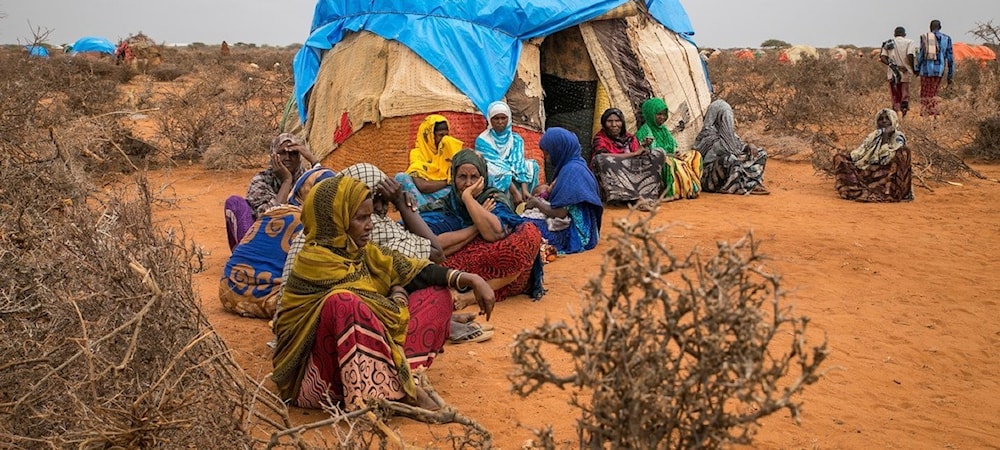Ethiopia: 4.5 million internally displaced as of June, UN reports
The primary causes of displacement in Ethiopia's northern and central regions are ongoing conflicts and climatic conditions, according to UNOCHA.
-

Ethiopian women moved to temporary sites close to permanent water points, as drought affected Ethiopia's Somali region. (UNOCHA)
Ethiopia is facing a severe internal displacement crisis, with approximately 4.5 million people displaced primarily due to conflict as of June, according to a recent UN report.
The Somali, Oromia, and Tigray regions are the hardest hit, with many displaced individuals enduring prolonged displacement periods.
More than half of the internally displaced persons (IDPs) have been displaced for over a year, while 23% have experienced displacement for two to four years, and 11% for five years or more.
Efforts to address the crisis have led to the return of 3.3 million IDPs to their home areas since January 2022. However, ongoing conflicts and climate-related crises continue to contribute to high levels of displacement.
The report emphasizes the importance of sustained support and durable solutions, including facilitating safe returns, supporting local integration efforts, and maintaining effective monitoring systems.
It is worth noting that Ethiopia's displacement crisis remains a significant humanitarian challenge, exacerbated by ongoing conflict and instability across the country.
Ethiopia accuses aid agencies of delivering banned equipment to Tigray
Last month, Ethiopia demanded stronger restrictions on assistance supplies to the country's war-torn Tigray area, accusing relief organizations of shipping forbidden weaponry that may be used by rebels, as well as more gasoline than is already permitted.
Following a three-month pause, the government authorized the delivery of vitally needed relief by land to Tigray, which has long been subject to what the UN has described as a de facto embargo.
It is worth noting that the conflict broke out in early November 2020, when Prime Minister Abiy Ahmed sent soldiers into Tigray, bringing a long-simmering dispute with the TPLF to a climax.
In March, the government proclaimed "an indefinite humanitarian truce effective immediately," allowing for the first time since mid-December for multiple convoys of humanitarian supplies to reach the area.

 2 Min Read
2 Min Read








